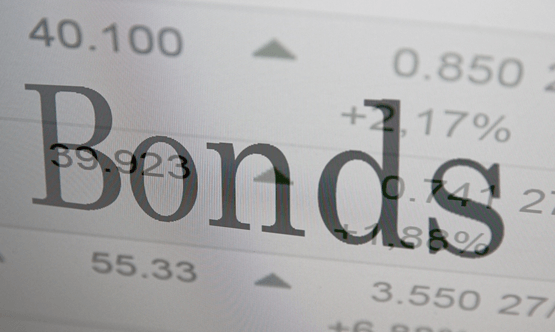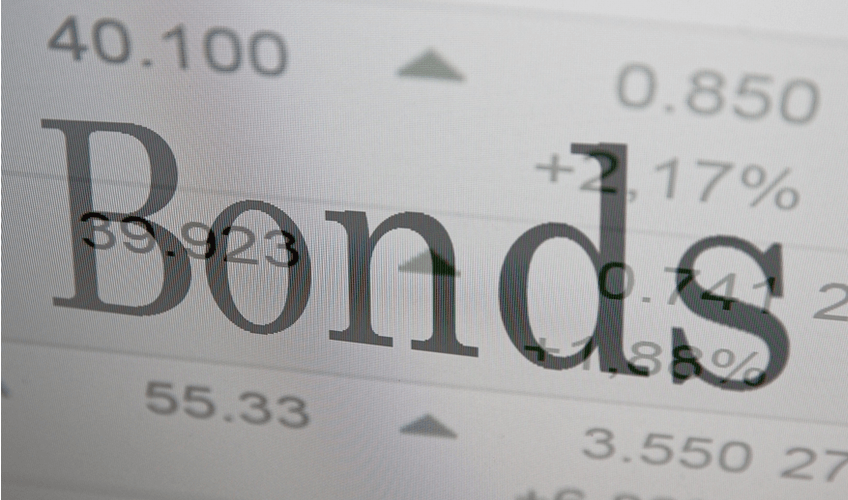Overview: Corporate Bonds
Many people interested in how to buy corporate bonds are looking for ways to diversify their portfolios. Some are conservative investors looking for funds that will compound interest at a higher rate than the current market but who also don’t want to tie up their money for an extended time in an annuity.
For these reasons and others, the corporate bond market has grown in the past several years. Due to this, investors are searching for more information on corporate bond interest rates, prices, and the process of buying corporate bonds.
This article will give you a comprehensive overview of everything you need to know about how to buy a corporate bond.


Image Source: BigStock
What Is a Corporate Bond?
A corporate bond is typically issued by a large, publicly traded company. It is sold so that the company can borrow money from investors to fund business initiatives. These initiatives can include building a new location or buying new equipment, which will hopefully lead to business growth further down the line.
Corporate bonds can be divided in several ways – by sector, a type of asset that serves as collateral or seniority. When compared to municipal bonds or treasuries, corporate bonds typically involve more risk. This is because corporate bonds are subject to event risk (the possibility that the company could be a takeover target of another company), credit risk, default risk or call risk.
However, corporate bonds are typically a less risky investment than stocks or other more volatile investing options. Corporate bonds can also provide a tax-free income stream depending on the type of corporate bond, the issuing company, and the state where the investor lives. Read on to learn more about the benefits and potential drawbacks of buying a corporate bond.
See Also: Are Bonds a Good Investment Now? State of Heightened Market Volatility – Buy or Sell Bonds?
Things to Keep in Mind When Buying a Corporate Bond
New bond investors should keep a few key things in mind when buying a corporate bond. These obviously include things like the corporate bond prices, although there are other non-quantifiable factors that come into play. These include the quality of the management team of the corporation, the overall economic environment, and the trends happening within the issuer’s industry. It’s important that potential investors do their research into these factors before buying a corporate bond.
However, generally, investors should focus on the price, credit rating, maturity, and yield-to-maturity (YTM) before making a purchase.
- Price – Corporate bond prices are obviously a key factor when it comes to buying a corporate bond. There are three main price levels in the corporate bond market: buying bonds at a premium, a discount or at par value.
Currently, most investors pay a premium when there is a low . When investors pay a premium, it’s important to pay close attention to the YTM rate because paying premiums will reduce the yield you receive since the principle you’re given at maturity doesn’t include this amount. Read on to learn more about this important calculation.
Par value means the face value of a corporate bond, or the amount an investor will receive when a bond reaches maturity. Typically, the face value will be $1,000 and is expressed in units of $100, which can be thought of as percentages.
- Credit Rating – Credit ratings help investors quantify risk. The best-rated companies (those with AAA, AA or A ratings according to S&P standards) obviously pay out the least yields since they offer the most stability. According to Forbes, an AAA corporate bond that matures in two years could pay as little as 0.25 percent while an A-rated corporate bond may pay as much as 0.95 percent.
Corporate bonds are classified into two broad categories when it comes to credit ratings: investment grade bonds, which are rated at BBB or above, and junk bonds, which are rated below BBB. Especially when that is rated less than BB, it is important to diversify your assets and in multiple, different rating grades.
- Maturity – The maturity of a corporate bond is when the issuer will return your principle to you. Maturity dates often come with an interest payment frequency, which is typically semi-annual. Maturity should be factored in when thinking about the likelihood of corporate bond interest rates rising in the future since investors may not want to hold a bond past a certain time period.
- Yield-to-Maturity (YTM) – The YTM tells investors how much yield, or interest, you will receive when you buy a corporate bond to when the bond matures. This number is important because, even if you pay a premium on your corporate bond, you can still receive yields, which also depend on the credit rating.
Debatably, YTM is the number you should pay the most attention to when buying a corporate bond. Don’t be confused by stated coupon rates (prices) – instead, focus on how much money you will actually earn over the maturity period.
Don’t Miss: 10 Best Fixed Rate Bonds – Top Bonds for Fixed-Income Investors
All-in-One Change Management Tools
Top Rated Toolkit for Change Managers.
Get Your Change Management Tool Today...
Corporate Bond Interest Rates
Before buying a corporate bond, it’s a good idea for investors to first check out the current and anticipated policies on corporate bond investment rates. If a corporate bond price is higher than the current interest rate, this is an attractive purchase.
Changes in corporate bond interest rates have huge ramifications on price. Often, these two numbers act like a seesaw: when one rises, the other falls.
Short-term bonds tend to have lower risk, and so those with shorter life spans tend to pay lower corporate bond interest rates. Bonds with a longer time to maturity pay higher interest rates to compensate buyers for potential fluctuations in the marketplace, interest rate changes, and levels of risk.
Risks of Corporate Bonds
Though bonds are relatively safe investments when compared to the volatility of the stock market, these investments don’t come without risk. Of the three types of bonds – municipal bonds, treasury bonds, and corporate bonds – corporate bonds carry the most risk. Those researching how to buy a corporate bond should weigh these risks before making an investment.
In the worst-case scenario for a corporate bondholder, the issuing company defaults on the bond. This can suspend or cease coupon payments but could also result in the company not paying out the face value of the bond at maturity. If this happens, bondholders do have legal means to try to collect some of the repayment, but, often, this does not come at the full value invested.
Related: 5 Best Online Stock Trading Sites for Investors – Top Rankings
This is why it’s important to pay attention to the credit rating of the issuing company. Investment-grade bonds have a low chance of default in contrast to junk bonds.
In addition to paying attention to the credit rating of the issuing company, investors should also track the company through annual reports and the news. Setting up automatic Google Alerts for the issuing company’s name is a good way to keep tabs on the goings-on of the issuer.
Researching trends and events in the industry where the company operates is a good way to get ahead of the curve when it comes to risk associated with your corporate bond. When these trends catch up to the corporate bond rate, it could be too late to minimize your losses on your investment if rates are negatively impacted.



Image Source: BigStock
Reducing Risks of Buying a Corporate Bond
Though the corporate bond market does carry some risk, there are several smart best practices that investors can follow to minimize their risk and maximize their returns when buying corporate bonds.
One way to do this is to pay close attention to your asset allocation and use smart investing techniques for diversifying your portfolio. One good rule is the “Rule of 100.” Subtracting your age from 100 will result in the percentage you should consider investing in stocks. For example, a 40-year-old should consider investing 60 percent of assets in stocks and 40 percent in bonds. This should be regularly monitored and tweaked as you age.
This is one reason why corporate bonds are so attractive to retirees. Bonds can be thought of as fixed income that retirees can count on to cover their expenses. Retirees also often have time to put in the necessary research it takes to stay abreast of corporate bond market fluctuations.
Popular Article: Top 7 Best Futures Brokers for Futures Trading (Ranking, Reviews, and Ratings)



Corporate Bond Sales
When buying a corporate bond, investors usually first have an account with a brokerage like TradeKing or Scottrade. Investors can also buy corporate bonds directly from the issuer with programs like Fidelity’s CorporateNotes.
When Buying Corporate Bonds Makes Sense
Investors looking into buying corporate bonds should evaluate if these investments make sense for their portfolios. Times these purchases make sense include:
- If you want a liquid market for your corporate bond purchase since bonds issued by publicly-traded companies are more liquid than municipal bonds.
- If you’ve already done your research and believe in a certain public company that issues bonds. If you feel you have the necessary knowledge about buying a certain corporate bond, you can allocate a percentage of your assets to this company.
- If you’d rather receive a higher corporate bond interest rate than a tax break.
- If you are comfortable with a higher level of risk than is associated with a municipal bond or treasury bond.
- If you expect interest rates to decrease in the future and want to lock in your corporate bond interest rate now.
- If you don’t have a clear outlook on the stock market or are unsure of its outcomes.
When to Liquidate Your Corporate Bonds
Typically, investors buy corporate bonds with the intent to hold them until maturity so they can see the full benefits of their purchase. However, there are some cases where you should liquidate your holdings. These include:
- If you need the money for a specific emergency purchase.
- If you have a better outlook on the stock market and would rather reallocate your assets since you are more comfortable with the level of risk.
- If you are concerned about the financial health of the issuer or the industry as a whole before there is a negative impact on the corporate bond interest rate. This is why it’s important to pay close attention to company reports and earnings statements while you hold a bond.
When buying a corporate bond, investors should also be aware of call risk. This refers to the chance that the issuing company may call bonds back before their maturity. This typically happens when corporate bond interest rates fall or because the issuer can receive financing at a lower cost.
If you determine that a call is imminent, selling your corporate bond is a prudent choice.
Read More: Best Forex Trading Platform – 3 Top Forex Brokers (Ranking & Reviews)









Bottom Line
Learning how to buy corporate bonds takes some time, but the results can be exciting for investors who put in the necessary research. Buying corporate bonds can be an excellent means for retirees or first-time investors to get involved in a relatively low-risk investment and provide a source of income for years to come.
By paying attention to things like interest rates, credit ratings, prices, and YTM on corporate bonds, investors can be sure they are getting a good deal and making a solid investment toward their future.
AdvisoryHQ (AHQ) Disclaimer:
Reasonable efforts have been made by AdvisoryHQ to present accurate information, however all info is presented without warranty. Review AdvisoryHQ’s Terms for details. Also review each firm’s site for the most updated data, rates and info.
Note: Firms and products, including the one(s) reviewed above, may be AdvisoryHQ's affiliates. Click to view AdvisoryHQ's advertiser disclosures.





